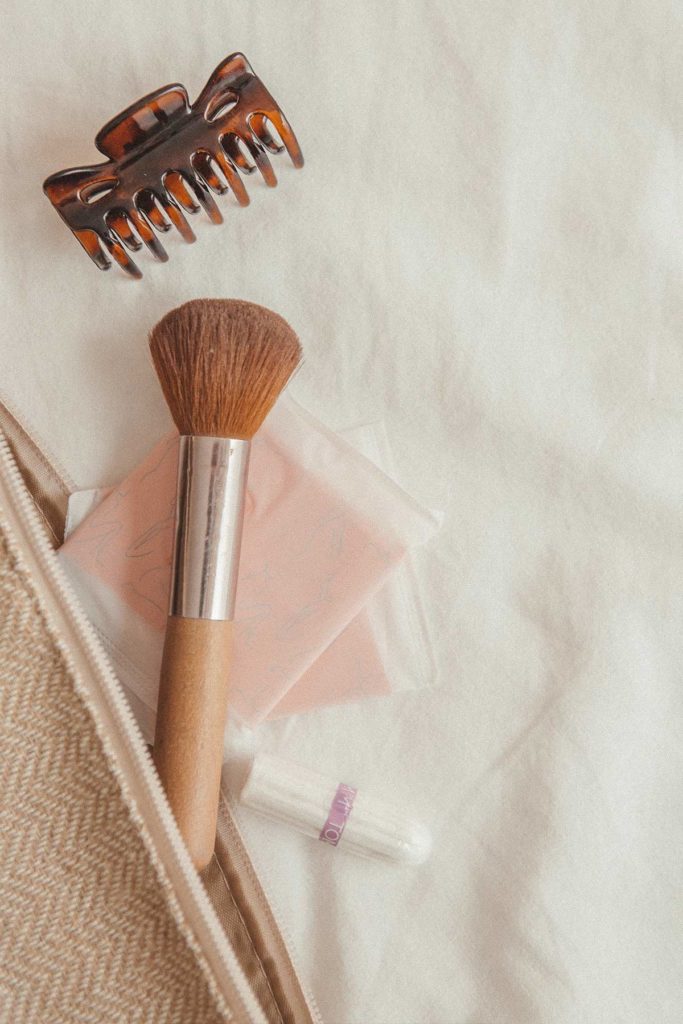
Let’s make peace with your vagina and show it some love by establishing a healthy vaginal care routine.
A routine that starts by making sure we’re all on the same page with an anatomy lesson.
I’ll keep it short, but it’s important to note because when you hear vagina, you think of the full package, external and internal. But your vagina is not everything. It’s only one part of many in and around your genital region. Let me explain. Let’s start with the external area.
The external area of your lady parts consists of the vulva. This is your external genitals that house your labia, clitoris, vaginal opening, and the opening to the urethra. While vaginas are just one part of the vulva, many people say “vagina” when they really mean the vulva. But clearly, the vulva has a lot more going on than just the vagina.
The internal parts of the female anatomy include the vagina, cervix, uterus, fallopian tubes, ovaries, glands, and G spot. Both internal and external areas are equally important and deserve extra care. Inside this post, we’ll talk about care for both internal and external. While also reminding you that not everything you thought was good is good for you.
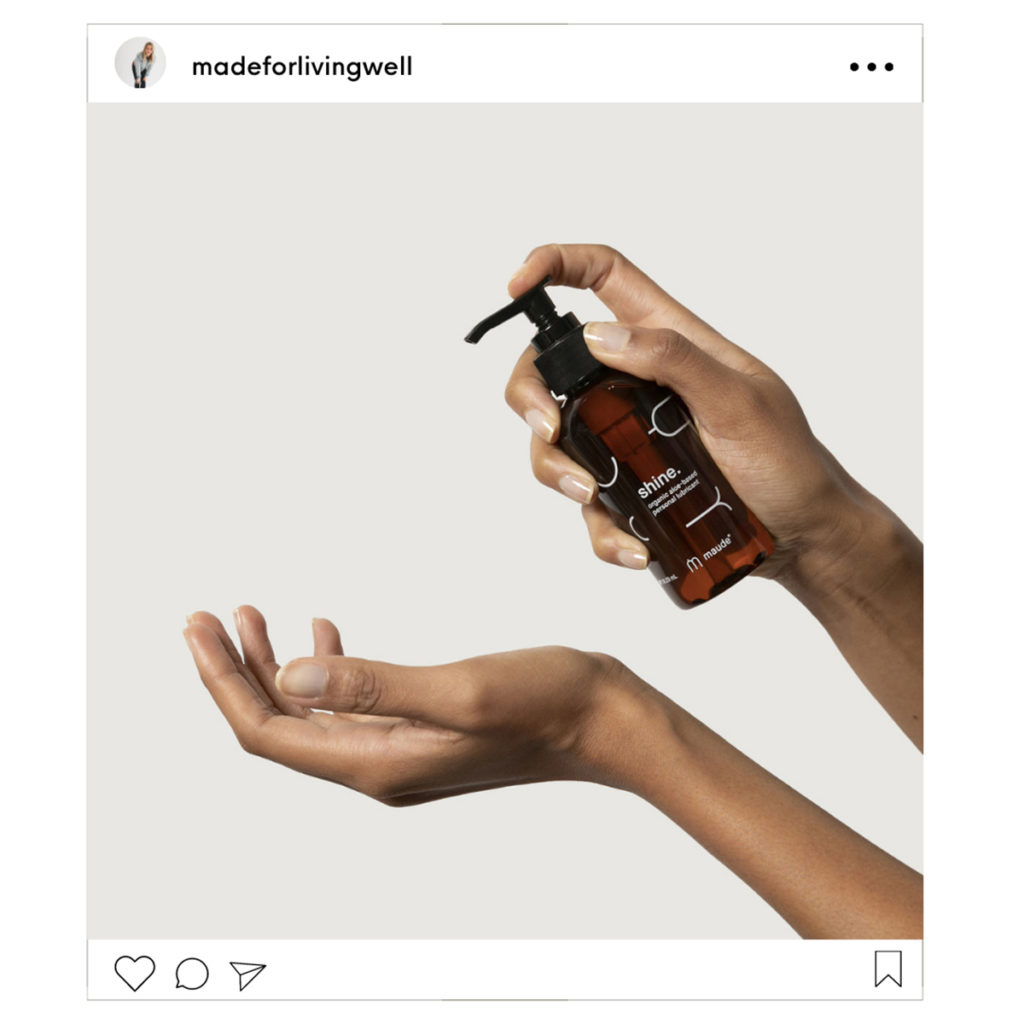
Vaginal Care: Internal Cleansing
Your vagina is self-cleaning.
The internal parts of your female parts, including your vagina, are self-cleaning. It’s a pretty self-regulated system. Including several processes like glands that produce fluids helping cleanse and lubricate the region. Considering this is a vital area used in reproduction (the most critical element in human survival), the body has incredible powers to keep it well.
Given the ability to clean itself means, you don’t need to clean it. Especially douching, which can be incredibly dangerous. Like the skin on your body or inside your GI tract, your vaginal area has a specific pH supporting its own microbiome. Both the pH and microbiome are critical to the health of this region.
That is why you should avoid anything that may disrupt the pH, leading to more inflammation and fluid production (a.k.a. discharge). All of which works to help regain balance.
It’s a vicious cycle, with smells and excess discharge making you feel like you need to wash more. But cleaning more, unfortunately, worsens the problem, not make it better.
Of course, if you’re concerned about the smell or type of discharge, it is best to consult a physician. Otherwise, make sure you work to support the body, not mask what you hate.
Anytime your pH or microbiome is disrupted by soaps and products, or you insert something into that region, it will go through a cleaning period. This cleaning period produces more discharge and sometimes a change in smell. This is why people experience more or different discharge after intercourse, with or without a condom.
Aim to support your internal vagina and cervix by keeping it free of soaps and other chemicals, including those found on tampons, pads, scented or petroleum-jelly-based lubricants, and even on condoms.
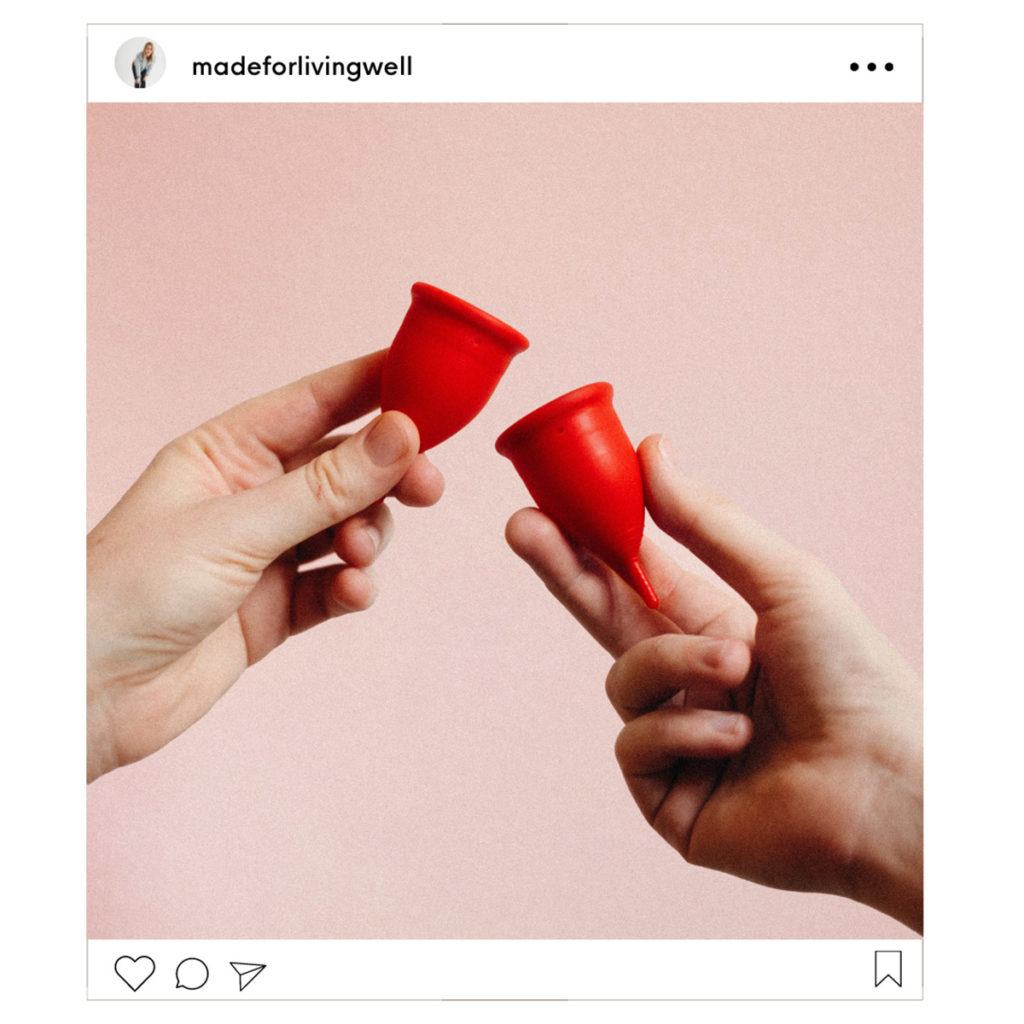
Tips for Healthy Vaginal Care
Here are some safe and healthy ways to care for your vagina.
01. Opt for Natural and organic period products + natural condoms
Most period products come scented. But these scents are one of the leading reasons for an imbalanced vaginal pH, worsening smells, and inducing bacteria and yeast. Try opting for safer options like silicone menstrual cups or menstrual discs, all-natural tampons, and natural pads. Or try period panties.
Condoms are no different than period products, opt for all-natural, scent-free condoms such as these.
02. Use natural lubricant or reach for a cooking oil
It is normal for your vagina to experience dryer parts of your cycle. Especially near, during, or right after your menstrual flow. Some women struggle with dryness all the time, which is worthy of a conversation with your doctor.
Regardless, if you need a lubricant, avoid petroleum jelly, body lotion, and saliva at all costs. Instead, opt for a water-based all-natural lubricant (like this top-rated brand) or a safe cooking oil like coconut oil.
03. Urinate after sex
Anytime you put something in your body, you are incorporating bacteria. Most of the time, this causes no problems. However, it can get into the opening of your urethra, which is a separate hole from your vagina and back up into your bladder, leading to more risk of UTIs. To avoid this, urinate after sex to flush the region of excess bacteria and other irritating fluids.
04. Strengthen Your Pelvic Floor
The pelvic floor (made up of the muscles between the tailbone and the pubic bone) is having a moment, and rightfully so. From bladder and bowel movement control to better sex and core stability to prenatal and postpartum well-being, the muscle group has a lot of crucial functions, deserving some much-needed love.
The pelvic floor creates a sense of balance in a female’s body. Strengthening it will healthify the whole of who you are. Try using a specific pelvic floor training device or practice Kegels. There is a right and wrong way to strengthen the pelvic floor. Ask your doctor or seek a pelvic floor therapist to help you when in doubt.
05. Know your Cycle
Female anatomy is designed based on the reproductive cycle (menstrual cycle) that happens roughly every 21-39 days. This cycle is partially responsible for your hormonal flow, immune system, and how much energy you have. Although, it can be equally as influenced.
Inside this cycle, there are four phases, menstruation, follicular, ovulatory, and luteal phase. Each phase brings different needs, including changing energy output changing how you feel. Some phases demand more rest, while others make you feel energized. Understanding your cycle and keeping track of where you are can help you choose the best action. Try using a cycle tracking app or tracking it inside your planner.
Did you know these 7 things about your period?
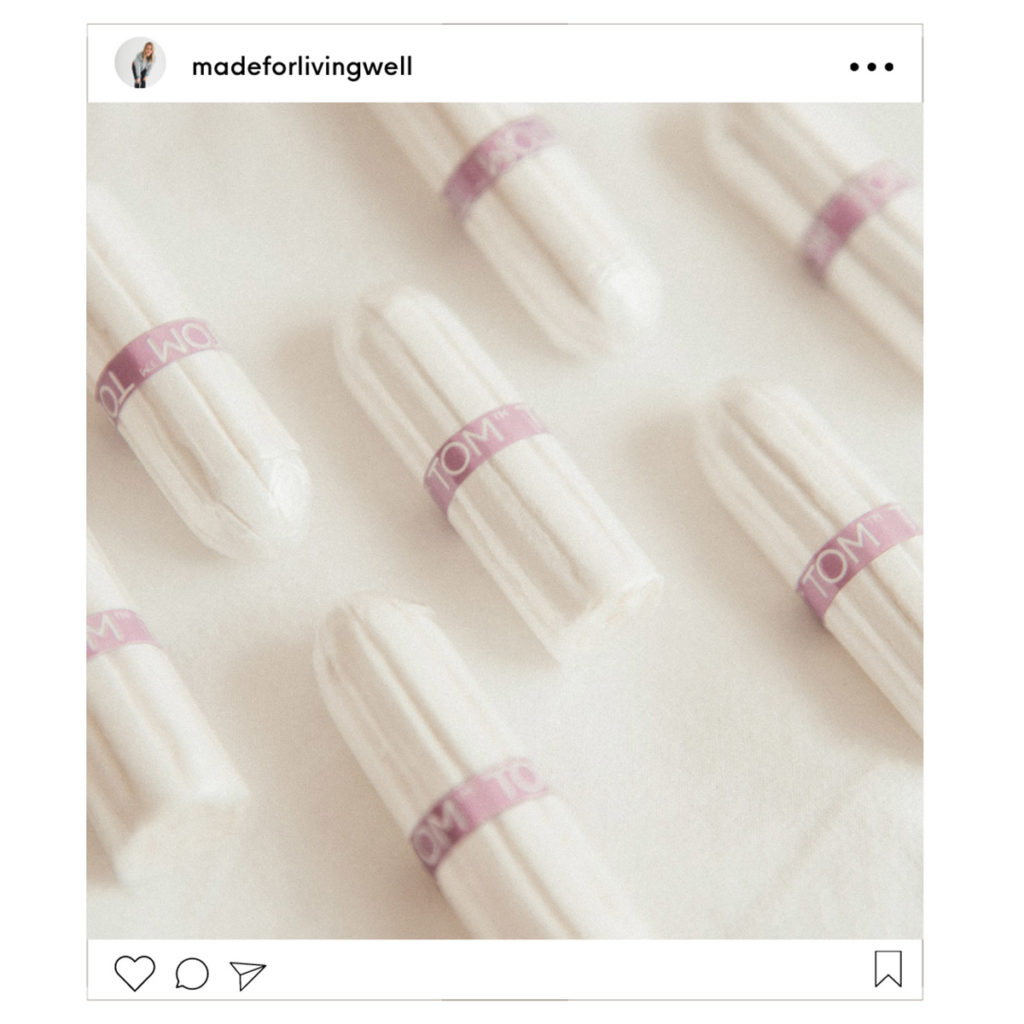
Vaginal Care: External Care
The external area, known as your vulva, is just as critical to your lady parts as your vagina. Like the skin on your face or arms, the work of your vulva is to keep your internal region safe from external invaders.
But unlike your facial skin, the skin on your vulva is more sensitive than any other place on the body. And keeping it healthy means thinking less is best and gentle always.
Tips for Healthy Vulva Care
Like your internal area, your vulva is just as sensitive to chemicals, scents, and excess bacteria. Here are a few tips to keep things healthy.
01. Be cautious about what you wear
Full coverage undies may not be the sexiest thing in your underwear drawer, but they are scientifically the healthiest. The type of fabric and build of the underwear is important. While I’m not ruling out thongs, do not that prolonged exposure can increase your risk of bacterial infections and cause more inflammation of the vulva dermis.
If you’re wearing them to prevent lines, dare I say commando is best?
02. Keep it dry
Your vulva is extra sensitive, making it more vulnerable based on what you wear. It also needs to stay dry and breathe. Steer clear of fabrics like silk that don’t soak up the moisture and prevent airflow.
If you choose to wear them, because you will, make sure you limit the length of time, opting for cotton underwear while working out and when asleep – unless you opt for the birthday suit.
03. Rinse rather than lather
Your vulva is extra sensitive to soaps, chemicals, and scents. You may even feel like you need to lather it up. But these products generally make smells and discharge worse when all it needs is a good rinse. Remember, your vulva and vagina have everything else it needs to stay clean.
Skip the soaps and opt for warm water. If you feel like you need extra care, try soaking in a bath with Epsom salts. This helps rebalance the pH and cleanse the vulva without causing dysregulation in fluid production. Plus, a weekly Epsom salt bath is good for more than just your vagina.
04. Be thoughtful about what you do with the hair
To shave or not to shave? I think it’s an incredibly personal decision and one that you need to make because it’s comfortable. The only wrong way to go about it is to do something that makes you feel physically uncomfortable. A position women find themselves in more with shaving than letting it go all-natural.
Pubic hair does serve a purpose. It works to protect the ultra-sensitive skin of the vulva. So most people will express that having hair or leaving some feels better. It also tends to decrease the amount of discharge you experience. Perhaps, all of that to say, the healthiest vagina is the natural one, trimmed but with hair.
05. Let it breathe when you sleep
Healthy ventilation is good for all things, including vaginal care. I’m not saying you should wear your birthday suit to bed, but going commando with some looser bedtime shorts, can help your vulva heal. If this is entirely out of the picture, stick to cotton always when you sleep.
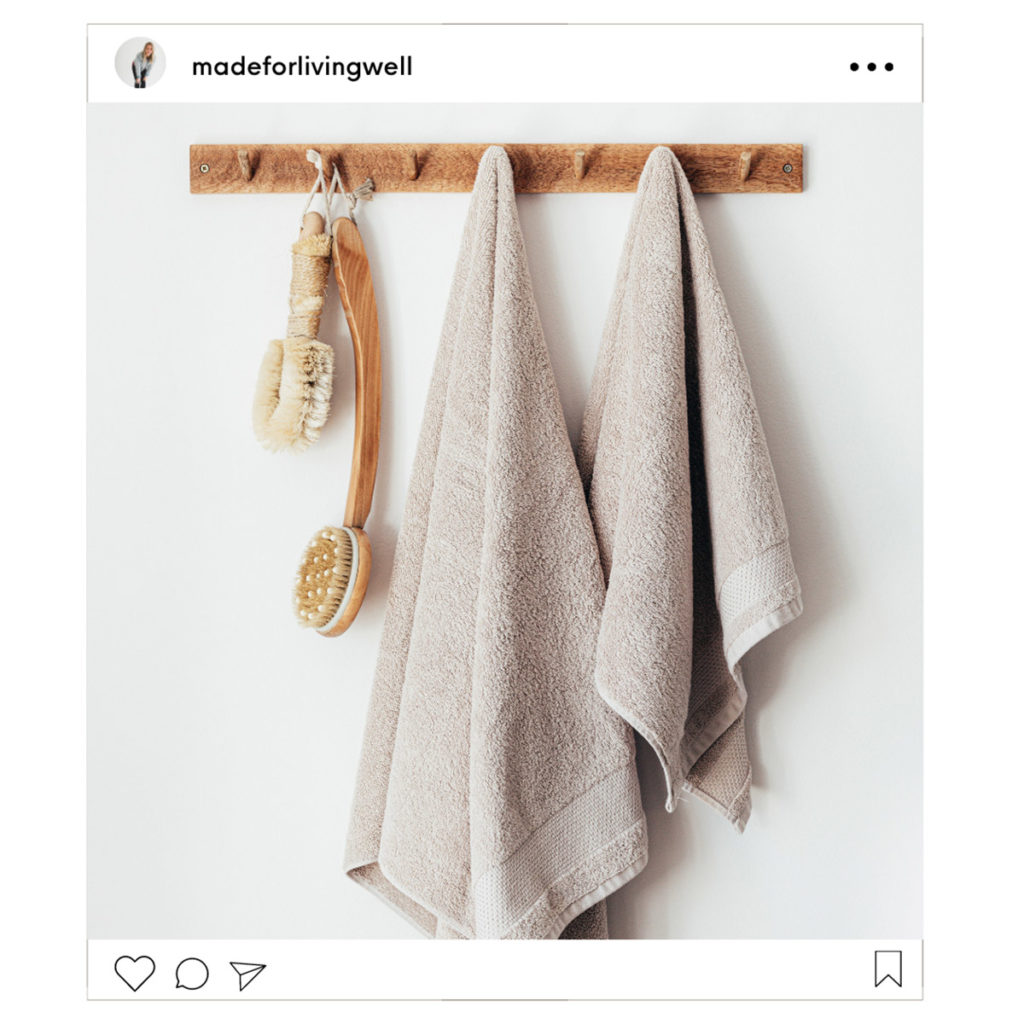
Vaginal Care: What To Do About the Smell?
Understanding healthy vaginal care means understanding your vagina should smell like a vagina. Your vagina has a unique and distinct smell produced by healthy bacteria and pH levels. Usually, it is unconcerning and completely normal.
The truth is, 100% of feminine parts smell different than the rest of the body. It is a vagina and will smell like one. But, there is the occasional time a different smell can cause concern. If you’re in doubt, ask.
News flash: The vagina is not supposed to smell like flowers or perfume. Remember, douching and fragrance washes can cause irritation along with other side effects, making the smell worse. Steer clear of most feminine soaps and wipes and stick to warm water. If you need something on the go or after working out, these are the healthiest female wipes you can find.
